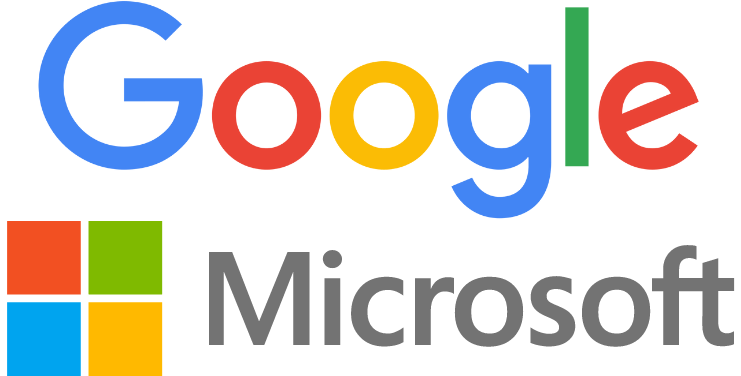Interested in getting HBCU stories straight to your inbox? SIGN UP for our executive HBCU newsletter to make sure you get exclusive videos, news and analysis in your inbox every Wednesday morning.
KEY INSIGHTS
- In early 2021, Microsoft announced it was growing its presence in Atlanta, leading to 1,500 new jobs.
- Google is set to take over 500,000 square feet in midtown Atlanta.
- Both companies have invested millions in scholarships and recruiting efforts in the city’s HBCUs.
Atlanta’s tech scene is proving to be a front-runner, holding its own amongst standout counterparts in Silicon Valley and New York City.
From Google to Microsoft, some of the world’s biggest companies are expanding their presence in the Georgia capital. As the companies grow and look to fill new roles, the city’s HBCUs can become a major producer of potential talent through the numerous colleges that are part of the Atlanta University Center (AUC) — Clark Atlanta University, Morehouse College, Morehouse School of Medicine and Spelman College.
Here’s how Google and Microsoft are approaching recruiting from the city’s HBCUs.
Seattle Tech Giant in Atlanta
On Wednesday night, a flyer shared on Morehouse’s Twitter enticed students to a panel with the quintessential college bait — free Chick-Fil-A and the chance to win an Xbox. The lures were for a panel discussion hosted by Microsoft about entry-level positions at the company and careers in tech, featuring three Morehouse alumni who now work at the tech giant.
In early 2021, Microsoft announced it was growing its presence in Atlanta, leading to 1,500 new jobs. The in-person recruiting panel at Morehouse, which has become rarer in the age of Covid, is just one element of Microsoft’s recruiting strategy in the city.
“We have dedicated recruiting teams based in and/or focused on building relationships and talent pools within the greater Atlanta market,” Renate Norman, General Manager of Global University Recruiting at Microsoft, told The Plug.
Since 2019, Microsoft has worked with an increasing number of HBCUs including Clark Atlanta, Morehouse and Spelman to encourage students to pursue computer science and other STEM fields, Norman said. The company’s recruiters are also partnering with the Atlanta Blacks at Microsoft Employee Resource Group chapter to help build engagement and awareness of tech and non-tech roles at the company.
Microsoft has also invested hundreds of thousands of dollars in Atlanta HBCUs over the past year. In December, Microsoft and utility company Georgia Power gave $200,000 to Clark Atlanta for students to build an advanced solar-powered generator.
The company also gave $5 million in unrestricted funds to 16 HBCUs over the last year, which included Clark Atlanta, Morehouse, Morehouse School of Medicine and Spelman, according to Microsoft’s June 2021 Racial Equity progress report. It is unclear how much money was allocated to each school.
From 2018 to 2019, Microsoft’s global full-time workforce increased by 13,000 people, data from Statista shows. Of that, the company hired 119 students from 22 HBCUs in 2019, according to their 2020 Diversity and Inclusion report, which represents less than one percent of that workforce increase.
Their 2021 DEI report highlighted that Black and African American employees at Microsoft comprised 6.1 percent of individual contributors, but only 3.9 percent of managers, 3.2 percent of directors and 3.8 percent of partners and executives in the core business.
From Silicon Valley to the A
Alongside Microsoft, Google’s foray into the city was bigger than expected.
When the tech giant first announced it was growing in 2019, the plans were for it to occupy just five floors of a soon-to-be-built skyscraper in midtown Atlanta. Two years later, Google announced it would instead be taking over 19 floors, or 500,000 square feet for its corporate office at 1105 West Peachtree — just five miles north of Clark Atlanta, Morehouse and Spelman’s campuses.
“The AUC, we have a strong presence there,” Derek McGowan, Head of Talent Pathways and Partnerships at Google, told The Plug.
McGowan joined the company in March 2021 to help lead the “new HBCU attitude at Google,” shifting from a focus on pipelines to partnerships.
A few months prior to him joining the company, Google was in a firestorm of controversy after the firing of two prominent Black women, recruiter April Curley and AI researcher Timnit Gebru. The firings led to HBCU 20×20, an organization that connects students and graduates to jobs and internships, to end their partnership with Google because of allegations of discrimination by the women.
One of the ways McGowan said Google is trying to foster more pathways is through its Google in Residence program, where a Google employee is on campus for months and helps support faculty and develop curriculum. Ernest Holmes, a Morehouse grad and Google software engineer, is currently Morehouse’s Googler in residence. He is working on expanding his outreach to the other schools in the AUC.
“He was so strong at Morehouse, I hired him on my team,” McGowan said.
Google has also invested more than $10 million over the past year in Atlanta HBCUs.
Last June, Google gave $50 million in unrestricted funding to 10 HBCUs, which included Clark Atlanta and Spelman. In December, Google gave Holmes’ non-profit CodeHouse a $1 million grant to continue helping Atlanta-area students of color build tech skills and get work experience.
This past week, two students who are a part of CodeHouse received summer internships with tech giants. Morehouse freshman Azola Martin will be working with PayPal and Ashley Sanders, a freshman at Spelman, will intern with Microsoft.
Beyond Google and Microsoft, other companies are expanding in Atlanta. Airbnb plans to open a tech hub in the city later this year, as does Visa. Amazon Photos also plans to open an office in Atlanta soon, sources told The Plug.
As big tech’s presence in Atlanta keeps growing and the plethora of Black tech talent in the city supersedes that in other major cities, recruiters focused on HBCUs as sources for new talent will be well-positioned to build the diverse workforce of the future.








